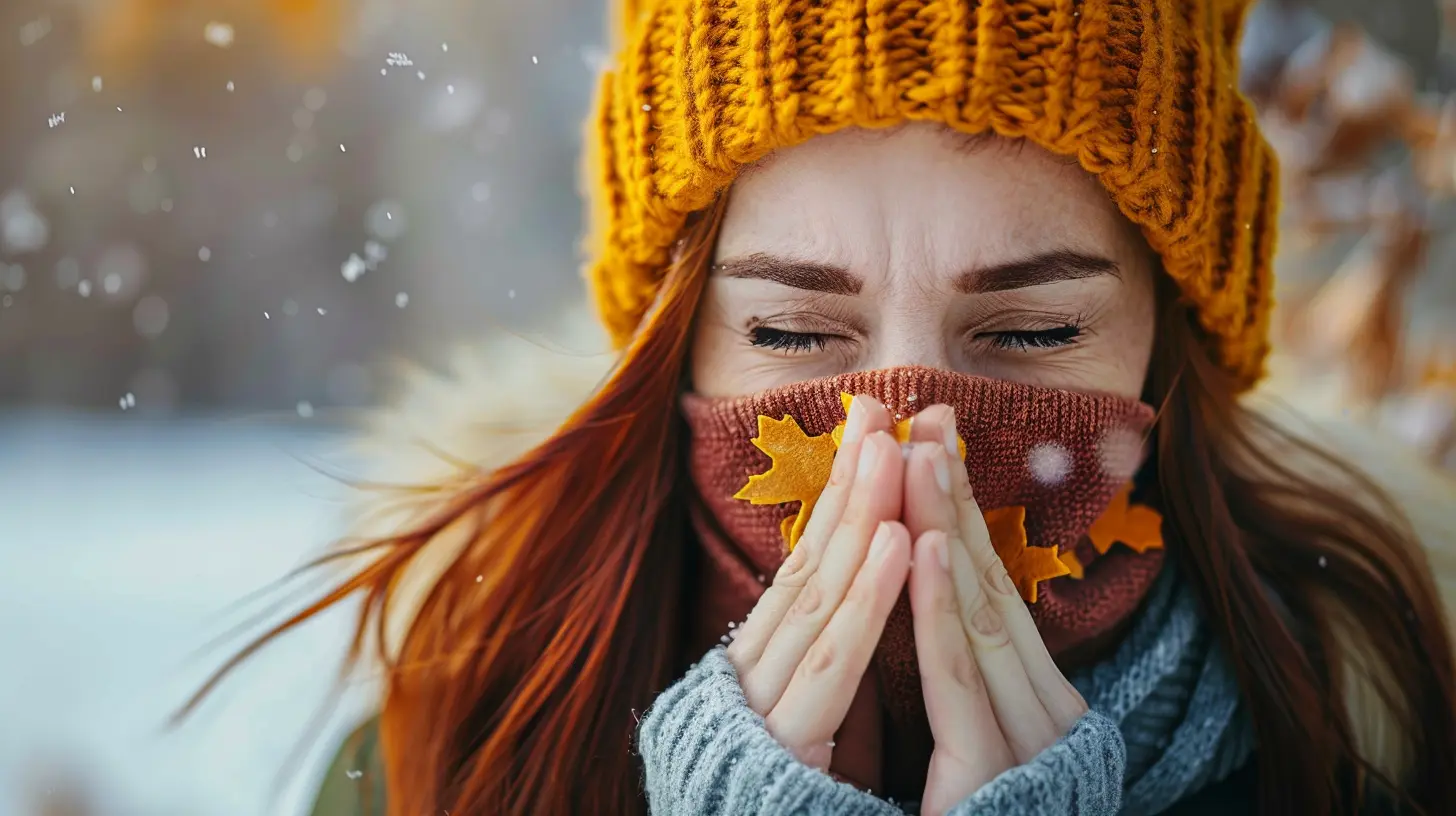Cold vs. Flu vs. Allergies: How to Tell the Difference
31 May 2025
Let’s be real — when you're sneezing, sniffling, and your head is pounding like a drum, it can feel impossible to figure out what you're dealing with. Is it just a regular cold? Or could it be the flu sneaking up on you? Maybe it’s your allergies just throwing a seasonal tantrum again?
Knowing the difference between a cold, the flu, and allergies can save you from unnecessary worry, missed workdays, and even help you recover faster. So, let’s break it down in a simple, no-nonsense way that'll help you feel more in control when those symptoms start flaring up.
Why It Matters to Know the Difference
Imagine this: You wake up feeling awful — tired, aching, stuffed up — and your first instinct is to reach for cold medicine. But what if it’s allergies, and that cold medicine doesn't do a thing? Or worse, what if it's the flu, which might need antiviral meds or even a doctor visit?Misidentifying your symptoms doesn’t just slow down your healing — it could make things worse.
Let’s Talk About the Common Cold
What Is It?
The common cold is, well, super common. It’s caused by a variety of viruses (usually rhinoviruses), and while it can make you feel pretty crummy, it’s usually mild and goes away on its own in a week or two.Common Symptoms of a Cold:
- Runny or stuffy nose- Sore throat
- Sneezing
- Mild fatigue
- Minor body aches
- Coughing (usually mild)
- Low-grade fever (rare in adults)
One giveaway? Cold symptoms tend to come on gradually. You might start with a scratchy throat, then a day later the sneezing and runny nose show up.
How It Feels:
Have you ever tried to talk while your nose sounds like it's full of mashed potatoes? That’s the cold for you. It's more annoying than anything.
Now, the Flu Is a Whole Different Beast
What Is the Flu?
Influenza (aka the flu) is a viral infection too, but it hits way harder than a cold. Think of the flu like a cold’s mean older cousin who doesn’t mess around. It can knock you flat on your back for days.Flu Symptoms Include:
- Sudden onset of fever (often high)- Chills and sweats
- Fatigue (like, crash-on-the-couch-all-day tired)
- Muscle or body aches
- Dry, persistent cough
- Headaches
- Sore throat
- Runny or stuffy nose (sometimes)
Notably, the flu comes on fast. You can feel fine in the morning and by afternoon, bam, you're bundled up in bed like a burrito, trembling, even though it’s not that cold.
How It Feels:
Think of how you feel after pulling an all-nighter, plus the soreness from a full-body workout you weren’t ready for — that’s the flu. Brutal.
Then There’s Allergies – The Sneaky Imposter
What Are Allergies?
Allergies aren’t caused by viruses. They’re your immune system’s overreaction to harmless stuff like pollen, dust, pet dander, or mold. Instead of ignoring these triggers, your body goes into full defense mode and creates inflammation, especially in your sinuses.Allergy Symptoms Often Include:
- Sneezing fits- Runny or stuffy nose (often both)
- Itchy, watery eyes
- Itchy throat or ears
- Post-nasal drip
- Fatigue (from poor sleep)
- No fever
Unlike colds and flu, allergies don’t come with aches or fever. And the biggest sign? They stick around and follow patterns — like clockwork every spring or whenever you dust your house.
How It Feels:
You might feel like someone stuck a feather in your nose that won’t come out. Annoying and itchy, but not painful or feverish.Still Not Sure? Here’s a Symptom Showdown
| Symptom | Cold | Flu | Allergies ||----------------------|--------------------|--------------------------|------------------------|
| Onset | Gradual | Sudden | Varies (trigger-based) |
| Fever | Rare | Common (Often High) | Never |
| Fatigue | Mild | Intense | Moderate |
| Body Aches | Mild | Severe | Rare |
| Sneezing | Common | Sometimes | Very Common |
| Itchy Eyes/Nose | Rare | Rare | Common |
| Cough | Mild to Moderate | Dry and Persistent | Sometimes |
| Duration | 7–10 days | 1–2 weeks | Weeks to Months |
When you lay it all out like this, it becomes a bit clearer, right?
What Causes Each One?
Cold and Flu Culprits:
Viruses. Nasty little invaders. Once you pick one up (usually through droplets in the air or touching your eyes/mouth after being in public), your immune system kicks in, causing all those symptoms to try and fight off the invader.Allergies?
Blame your immune system for being a little too enthusiastic. It mistakes harmless allergens for threats and releases histamines — chemicals that cause the runny nose, sneezing, and itchy eyes.So, How Should You Treat Each One?
For Colds:
- Rest (seriously, don’t push yourself)- Stay hydrated
- Over-the-counter meds for congestion/symptoms
- Warm tea with honey (grandma’s cure for a reason)
For Flu:
- Rest, rest, and more rest- Antivirals (if caught early and prescribed by a doctor)
- Stay hydrated
- OTC meds for fever/pain
- Isolate yourself — flu spreads fast
For Allergies:
- Antihistamines (non-drowsy kinds for daytime)- Nasal sprays (like corticosteroids)
- Avoid triggers (keep windows closed during high pollen times)
- HEPA filters in your home
- Allergy shots (for long-term relief)
Ever tried using cold or flu meds for allergies? Not fun. You’ll feel like you’re treating the wrong problem — because you are.
Can You Have More Than One at the Same Time?
Unfortunately, yes. Life isn’t always fair. You could have allergies and catch a cold on top of them, which can make things extra confusing (and miserable). This is why keeping an eye on your symptoms and their timing is so helpful.When to See a Doctor
Here's when it's time to call in backup:- You have a high fever (above 101°F) for more than a few days
- Your symptoms last more than 10 days with no improvement
- You're experiencing shortness of breath or chest pain
- You’re at higher risk (young kids, older adults, immunocompromised)
It’s totally okay to ask for medical help — no need to tough it out if you're feeling beyond exhausted.
How to Prevent Them
While you can’t lock yourself in a bubble (though that might sound tempting during cold & flu season), here are some solid prevention tips:For Colds and Flu:
- Wash your hands often- Avoid touching your face
- Stay away from sick folks
- Get your flu shot!
- Boost your immune system (think: sleep, nutrition, and reducing stress)
For Allergies:
- Keep your home clean and well-ventilated- Use allergen-proof covers and filters
- Shower after being outdoors
- Monitor pollen counts in your area
Prevention isn’t foolproof, but it sure stacks the odds in your favor.
Final Thoughts: Listen to Your Body
Here’s the deal: You know your body better than anyone else. If you're feeling off, pay attention to the signs. Whether it’s the sniffles of a cold, the bodyquake that is the flu, or the itchy frenzy of allergies — figuring out the real cause is half the battle.And be kind to yourself along the way. Rest when you need it. Ask for help. Give your body the care it deserves.
Stay healthy, and may your tissues be few and far between.
all images in this post were generated using AI tools
Category:
Cold And FluAuthor:

Arthur McKeever
Discussion
rate this article
3 comments
Tilly Anderson
This article effectively clarifies the distinctions between cold, flu, and allergies, which can often be confusing. The symptoms table is particularly helpful for quick reference. Understanding these differences is essential for appropriate treatment and management. Great resource for anyone looking to navigate the changing seasons with confidence!
June 17, 2025 at 4:03 AM

Arthur McKeever
Thank you for your positive feedback! I'm glad you found the distinctions and symptoms table helpful for managing seasonal changes.
Savannah Romero
In the battle of sniffles and sneezes, may the best bug win! Spoiler alert: it’s usually just your cat’s fur in the air. Stay informed and keep those tissues handy!
June 5, 2025 at 4:41 AM

Arthur McKeever
Thanks for the humorous take! Indeed, staying informed is key to navigating sniffles and sneezes.
Elora Lynch
Great insights! Understanding symptoms helps with effective treatment.
June 2, 2025 at 2:36 AM

Arthur McKeever
Thank you! I'm glad you found the insights helpful. Understanding the differences is key to effective treatment!



